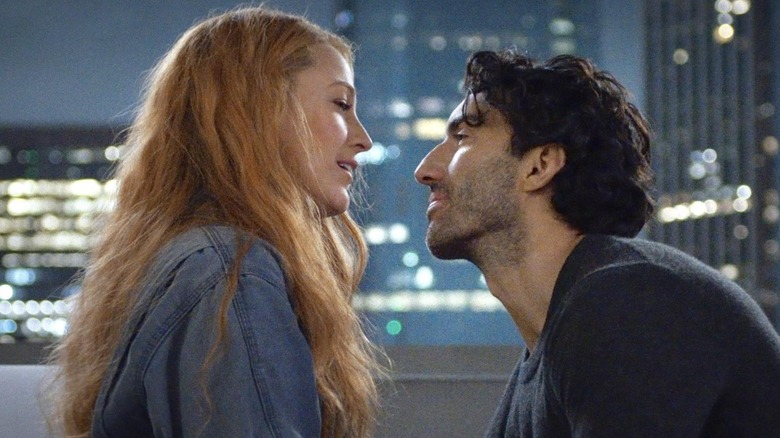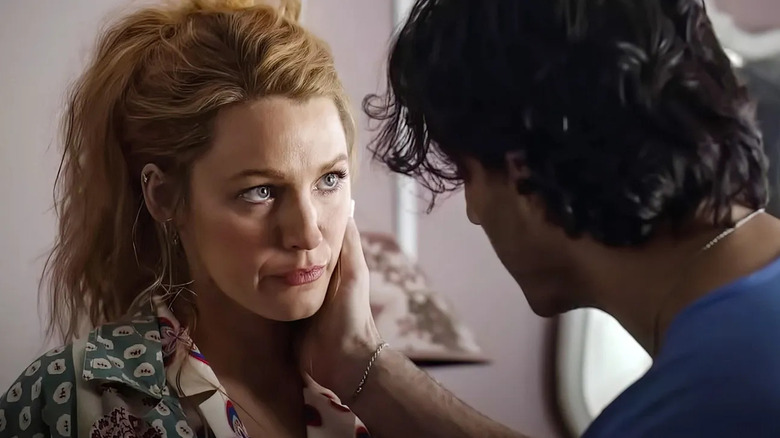The much-publicized feud between “It Ends With Us” star Blake Lively and her director and co-star Justin Baldoni has escalated into legal action. A lawsuit filed by Lively, and obtained by TMZ, makes claims of sexual harassment by Baldoni during production and a “social manipulation” campaign designed to “destroy” Lively’s reputation, resulting in “severe emotional distress” and harm to her business.
In the weeks leading up to and following the release of “It Ends With Us,” rumors began to swirl about a civil war between Baldoni and Lively during production. The lawsuit corroborates reports that Lively and Baldoni had conflicting views on how the film should be marketed, with Lively wanting “a more upbeat pitch about her character’s resilience” and Baldoni wanting to focus more on the domestic violence.
“It Ends With Us,” based on the romance novel by Colleen Hoover, stars Lively as Lily Bloom, a flower shop owner whose relationship with neurosurgeon Ryle Kincaid (Baldoni) turns sour when he starts physically abusing her. The marketing for has been criticized for selling the movie primarily as a soapy romance, underplaying the dark content, and for the tonal oddness of product tie-ins like Betty Blooms, a new floral collection in Lively’s Betty Buzz line of sparkling beverages.
The claims of sexual harassment in the lawsuit reference a big production meeting to address Lively’s issues with Baldoni’s on-set behavior. Among her demands were an end to Baldoni mentioning his sexual conquests, his past “pornography addiction,” and the genitalia of cast and crew members, no further inquiries about Lively’s weight, and “no further mention of [Lively’s] dead father.” Additionally, Lively demanded “no more adding of sex scenes, oral sex or on camera climaxing by [Lively] outside the scope of the script [Lively] approved when signing onto the project.”
Baldoni’s lawyer says the lawsuit is ‘false, outrageous and intentionally salacious’
Justin Baldoni’s lawyer, Bryan Freedman, responded to the lawsuit by counter-accusing Lively of a smear campaign, saying the claims are “false, outrageous and intentionally salacious with an intent to publicly hurt,” and that it was designed to “fix her negative reputation.” Freedman also accuses Lively of poor behavior during production, including “threatening to not showing [sic] up to set” and “threatening to not promote the film, ultimately leading to its demise during release.”
This claim of the movie’s “demise” is rather odd, and echoes Lively’s own legal team — who, according to TMZ, claim that the film “flopped” due to the conflict over marketing strategy. In fact, “It Ends With Us” was by far one of the biggest box office success stories of the year, grossing more than $350 million worldwide against a reported production budget of just $25 million.
The mention of the movie’s box office is presumably part of an effort to prove monetary damages caused by Baldoni’s alleged behavior — essentially, that the film could have made more money if not for the disagreement over marketing. Since sexual harassment itself is not typically classified as a criminal offense in the United States and is instead addressed as a civil matter, the question of who “wins” this lawsuit will be determined by whether or not Baldoni is ordered to pay any monetary damages towards Lively. Don’t expect any news on that front soon, though, since civil cases take years to play out and are usually settled outside of court anyway.
Baldoni’s production company, Wayfarer Studios, holds the film rights to “It Ends With Us” and its sequel, “It Starts With Us.” In most cases with a movie this profitable, a sequel would be a no-brainer. The ongoing feud between Lively and Baldoni obviously complicates matters, though Baldoni has indicated that he’s not interested in directing a sequel, and that Lively could perhaps direct it instead. Earlier this year, a source close to the situation told Variety: “There’s probably no world where these two will work together again.”









